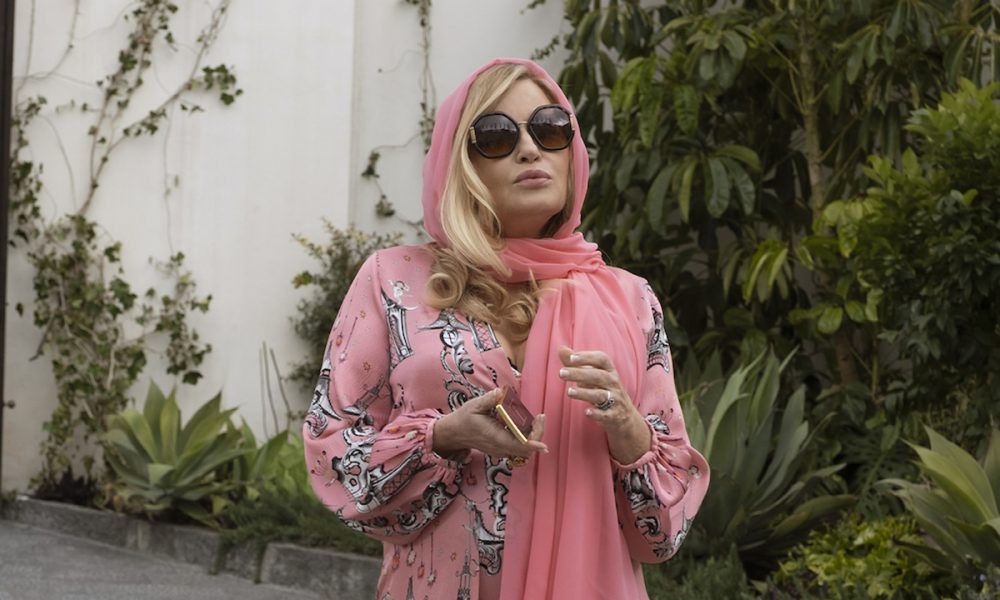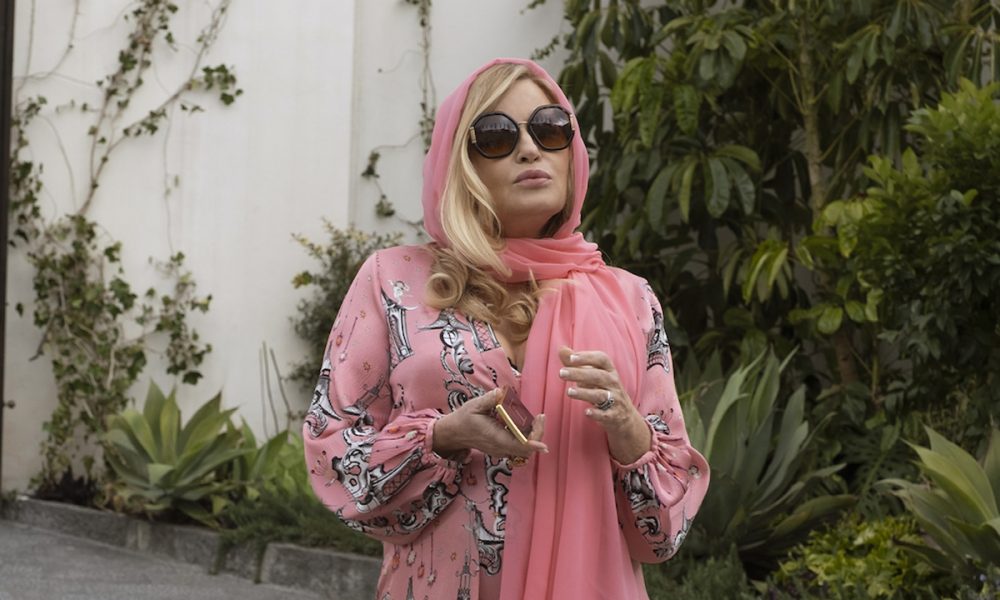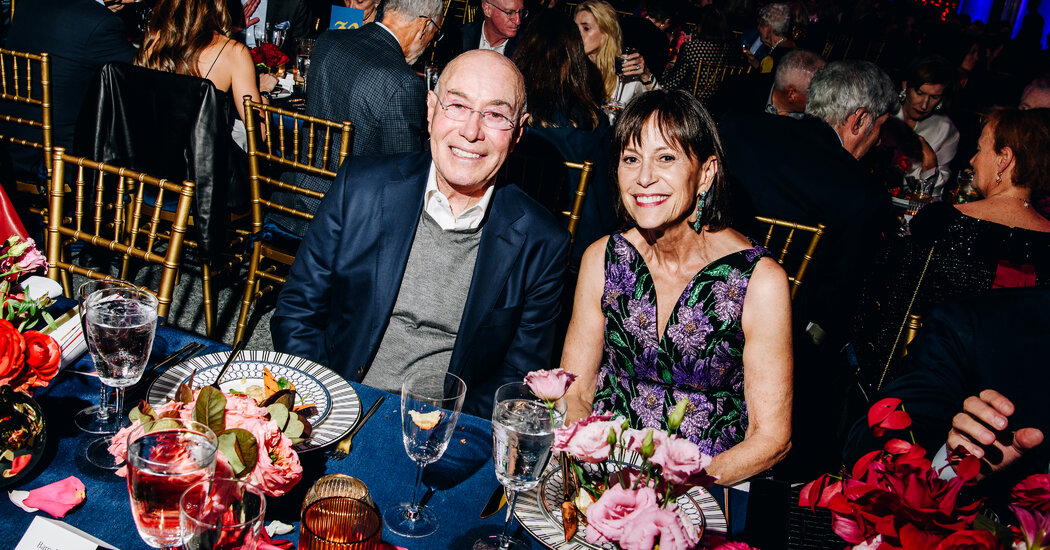
When the Golden Globes returned to television this week, nobody was sure how things would play out.
The Globes were known as the “best party” of Hollywood’s awards season until they were plunged into scandal by a 2021 LA Times report that exposed a profound lack of diversity within the Hollywood Foreign Press Association – the organization behind the Globes – and alleged a pattern of ethical violations around the expensive “perks” accepted by its voting members from PR reps campaigning for nominations. They were denounced and boycotted by most of the film and TV industry’s biggest power players, and NBC, the network that had televised the ceremony since the ‘90s, declined to broadcast the show again until the HFPA had cleaned up its act. In 2022, the Globes went on, but they happened behind closed doors, with no audience in attendance and the winners announced via YouTube, and Hollywood paid – or at least pretended to pay – little attention.
Now, a year later, the ceremony was back on the air, but despite the penitent HFPA’s massive retooling from within, widespread disapproval of the organization was still percolating in Hollywood, there was no guarantee anyone would show up to accept an award or even to sit in the audience.
In hindsight, of course, there shouldn’t have been any doubt. After two years of pandemic-mandated abstinence from its accustomed social whirl, Hollywood was ready for a party, and the stars – except for a few notable holdouts – just couldn’t say no.
No doubt in hope of getting home viewers to come to the party, too, the Globes kept with its tradition of enlisting edgy, irreverent comics to host the show – and shrewdly underscored its newly forged commitment to diversity – by handing those duties to openly gay Black comedian Jerrod Carmichael; eloquent, handsome, and dapper in pink, he wasted no time in stirring controversy, delivering an opening monologue that humorously acknowledged the Awards’ history of racism and stoked skepticism about their good intentions. While many in the crowd seemed to find him hilarious, some were visibly uncomfortable; the latter sentiment became increasingly palpable as he continued to troll the HFPA – and a few other plumb targets – throughout the show. Comments from viewers on social media, predictably, mirrored that divided response.
As for the awards themselves, the Globes seemed to make good on its promise of diversity. Several major prizes went to Black actors, including Angela Bassett (Best Supporting Actress in a Motion Picture, “Wakanda Forever”), Quinta Brunson, Tyler James Williams (Best Actress and Supporting Actor in a Musical or Comedy TV Show, “Abbott Elementary”), and Eddie Murphy, who was given the honorary Cecil B. DeMille Award.
Asian-American stars Michelle Yeoh and Ke Huy Quan (Best Actress in a Musical or Comedy Film and Best Supporting Actor in a Film, respectively) took home awards for their work in “Everything Everywhere All at Once,” and Indian composer MM Keeravani took the Best Song prize for “Naatu Naatu” from “RRR” – beating out the likes of Taylor Swift and Rihanna to become the first Indian to win a Golden Globe.
Though none of the few openly LGBTQ nominees won in their respective acting categories, the show still maintained a strong queer presence – partly thanks to Carmichael, who at one point even introduced presenter Niecy Nash by quipping, “We both gay now, so that’s good.” There was also Billy Porter’s show-stopping appearance in a fuchsia Siriano tuxedo gown to present gay entertainment mogul Ryan Murphy with the Carol Burnett Award, followed by an inspiring acceptance speech from Murphy in which he stressed the importance of telling queer stories and sang the praises of some of his frequent queer collaborators – even using some of his time to lead a belated ovation for MJ Rodriguez, whose historic win last year as Best Supporting Actress in a TV Drama was the first for a trans actress at the Golden Globes, and to hold up Black queer actor Jeremy Pope (who lost his Best Actor in a Film Drama nomination to Austin Butler’s acclaimed performance in queer filmmaker Baz Luhrman’s “Elvis”) as “the future” for queer representation onscreen.
So, too, was queer-inclusive content celebrated – most prominently “Everything Everywhere,” which, though it ultimately lost its Best Motion Picture Musical or Comedy nod to Martin McDonagh’s much-lauded “The Banshees of Inisherin,” gave the evening two of its most crowd-pleasing moments through its wins for Yeoh and Quan. In particular, Quan – who made his screen debut at 12 as Harrison Ford’s sidekick in “Indiana Jones and the Temple of Doom” – drew exuberant cheers from the audience with an emotional acceptance speech in which he expressed his gratitude to director Steven Spielberg for giving him his start four decades ago. Later, Spielberg’s win as Best Director for his semi-autobiographical “The Fabelmans” created a neat symmetry that surely resonated among viewers – especially Gen X-ers – and left them feeling warmly satisfied.
Standouts among the other queer-inclusive winners were “Monster: The Jeffrey Dahmer Story,” for which Evan Peters took Best Actor in a Miniseries or TV Film for his unnerving performance as the title character; queer creator Mike White’s “The White Lotus,” which won as Best Miniseries and created another highlight of the evening by allowing Best Supporting Actress in a Miniseries winner Jennifer Coolidge to deliver a sublimely self-lampooning acceptance speech while basking in the delight of an audience clearly as in love with her as the rest of us, not to mention generating one of the show’s biggest laughs when Carmichael apologized to Coolidge on behalf of “all the gays” for what they “tried to do to her on that boat.”
Still, despite a painfully clear priority to make room at the Globes party for everyone, the ceremony’s winners largely still reflected a tendency toward the mainstream. HBO’s “House of Dragons” beat critically acclaimed shows like “Better Call Saul” and “Severance” for the Best TV Drama prize, and “Banshees” dominated the Movie Musical or Comedy categories with additional wins for awards darling McDonagh’s screenplay and its star, Colin Farrell. Finally, sentimental favorite “The Fabelmans” capped the evening by bookending Spielberg’s directing win with a victory in the Best Movie Drama competition. In other words, there were few surprises, and while there were encouraging signs of change on prominent display, the HFPA’s choices managed to remain predictably “safe.”
It’s too early to say if Tuesday’s ceremony will put the Globes back in Hollywood’s good graces. As awards shows go, there have been worse, and the general tone of the evening remained mostly positive – though there was a noticeable sense of rebellion in the room which manifested in an increasingly ugly war of wills between speech-giving winners and the musical playoffs employed to keep them within their time limit. So, too, the ceremony’s compliant display of diversity was not enough to allay suspicions that such concessions were, at their core, all for just show.
For us, the assessment remains the same as usual when it comes to Hollywood awards shows and their efforts toward inclusion: yes, things are better, but there’s still a long way to go.
The complete list of winners is below:
BEST MOTION PICTURE, DRAMA: “The Fabelmans”
BEST MOTION PICTURE, MUSICAL OR COMEDY: “The Banshees of Inisherin”
BEST ACTOR, MOTION PICTURE DRAMA: Austin Butler, “Elvis”
BEST ACTRESS, MOTION PICTURE DRAMA: Cate Blanchett, “Tár”
BEST ACTOR, MOTION PICTURE MUSICAL OR COMEDY: Colin Farrell, “The Banshees of Inisherin”
BEST ACTRESS, MOTION PICTURE MUSICAL OR COMEDY: Michelle Yeoh, “Everything Everywhere All at Once”
BEST SUPPORTING ACTOR, MOTION PICTURE: Ke Huy Quan, “Everything Everywhere All at Once”
BEST SUPPORTING ACTRESS, MOTION PICTURE: Angela Bassett, “Wakanda Forever”
BEST DIRECTOR, MOTION PICTURE: Steven Spielberg, “The Fabelmans”
BEST SCREENPLAY, MOTION PICTURE: Martin McDonagh, “The Banshees of Inisherin”
BEST MOTION PICTURE SCORE: Justin Hurwitz, “Babylon”
BEST SONG: ““Naatu Naatu” (from “RRR”)
BEST ANIMATED FEATURE FILM: “Guillermo Del Toro’s Pinocchio”
BEST TV SERIES, DRAMA: “House of the Dragon”
BEST TV SERIES, MUSICAL OR COMEDY: “Abbott Elementary”
BEST ACTOR, TV SERIES DRAMA: Kevin Costner, “Yellowstone”
BEST ACTRESS, TV SERIES DRAMA: Zendaya, “Euphoria”
BEST ACTOR, TV SERIES MUSICAL OR COMEDY: Jeremy Allen White, “The Bear”
BEST ACTRESS, TV SERIES MUSICAL OR COMEDY: Quinta Brunson, “Abbott Elementary”
BEST SUPPORTING ACTOR, TV SERIES: Tyler James Williams, “Abbott Elementary”
BEST SUPPORTING ACTRESS, TV SERIES: Julia Garner, “Ozark”
BEST LIMITED SERIES OR TV MOVIE: “The White Lotus”
BEST ACTOR, LIMITED SERIES OR TV MOVIE: Evan Peters, “Monster: The Jeffrey Dahmer Story”
BEST ACTRESS, LIMITED SERIES OR TV MOVIE: Amanda Seyfried, “The Dropout”
BEST SUPPORTING ACTOR, LIMITED SERIES OR TV MOVIE: Paul Walter Hauser, “Black Bird”
BEST SUPPORTING ACTRESS, LIMITED SERIES OR TV MOVIE: Jennifer Coolidge, “The White Lotus”
CECIL B. DEMILLE AWARD: Eddie Murphy
CAROL BURNETT AWARD: Ryan Murphy








